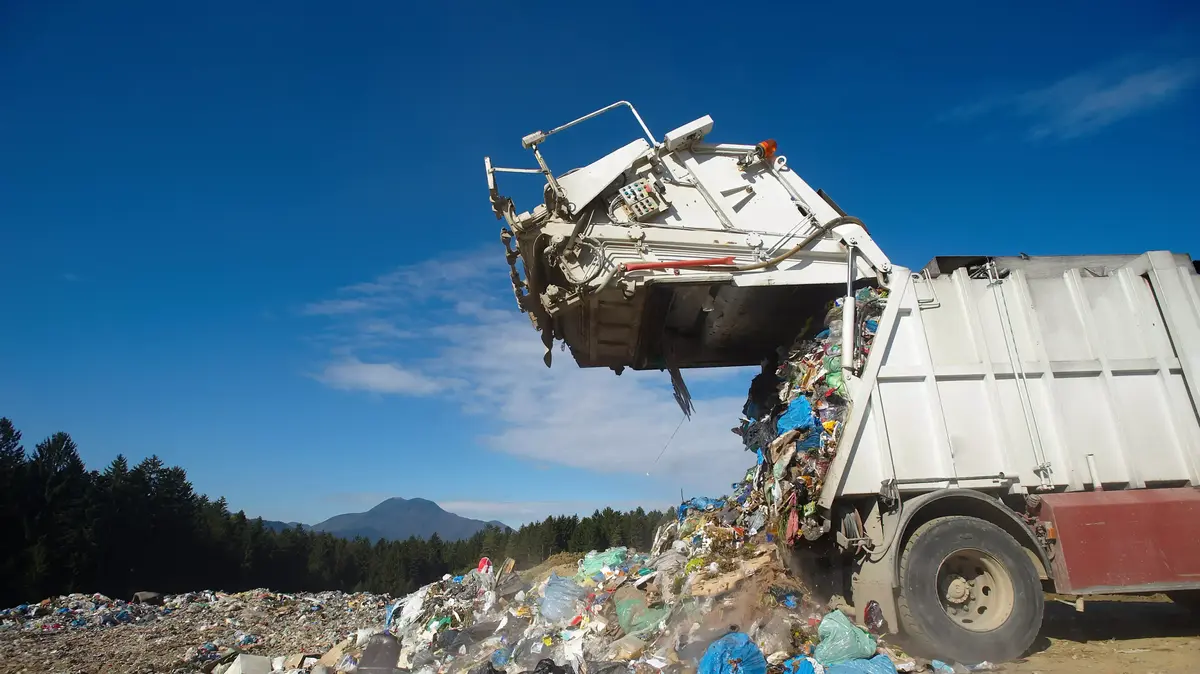Enlarge image
Electronic waste in the hall of a recycling company: Don't just throw everything away
Photo: Marcel Kusch / dpa
In view of the ever increasing mass of broken and unused electrical appliances, environmentalists are appealing to consumers.
You should have decommissioned electrical devices repaired or recycled, it is said on the international day of electronic waste, the "International E-Waste-Day", tomorrow Thursday.
According to estimates, the mass of e-waste generated annually will again reach a high in 2021 at 57.4 million tonnes. According to environmental experts from the WEEE Forum in Brussels, the mass of discarded refrigerators, monitors and cell phones even exceeds the weight of the Great Wall of China. WEEE stands for "Waste of Electrical and Electronic Equipment".
Despite all efforts to reduce electronic waste, the mountain continues to grow: According to the "Global E-Waste Monitor 2020" co-authored by the United Nations University (UN), 53.6 million tons of electronic waste were collected in 2019, which is a growth of 21 percent since 2014. And a trend reversal is not in sight: If the development continues, it is said that 74 million tons can be expected in 2030. On its website, the WEEE Forum points out that the corona crisis has resulted in many people purchasing even more electrical products.
The problem, however, is not just the mass, but also how it is dealt with.
According to calculations by the UN experts, only 17.4 percent of the electronic waste produced was collected and recycled in 2019.
Many valuable raw materials - including gold and silver - were instead burned or ended up in rubbish dumps.
Hazardous substances such as mercury would pose a threat to people and the environment.
Focus on citizens' responsibility
There is also another environmental aspect: "As long as citizens do not return, sell or donate their used, broken equipment, we must continue to mine completely new materials that cause major environmental damage," said Pascal Leroy, the director of the WEEE Forum and organizer of the " International E-Waste Days «, with.
The EU countered this problem early on with measures and guidelines that are intended to ensure the proper disposal of old electrical appliances and oblige the manufacturers of the appliances to take responsibility for the collection, sorting and recycling of their products.
Nevertheless, according to a study by the United Nations Training and Research Institute, some of the EU member states are lagging far behind their own targets when it comes to reducing e-waste.
For this reason, too, this year “International E-Waste Day” will focus on the end consumer, according to Leroy, and “focus on the responsibility that we all as citizens have to shape a circular economy”.
This is how you get rid of large electrical appliances
There are two ways to hand in large devices in Germany: firstly, free of charge at the municipal recycling center.
In various municipalities there is even an offer to have electrical devices picked up from the property or from the apartment - in some cases, however, this pick-up is subject to a charge, according to the Association of Municipal Enterprises (VKU).
Second, you can return large appliances to the store if you are dealing with a large electrical appliance retailer with a sales area of more than 400 square meters.
For online trading, the shipping and storage space is used accordingly.
An old device must always be taken back free of charge if a corresponding new device of the same type of device is purchased.
A tip: If the new goods are delivered, the old device can be taken away with you.
When concluding the sales contract, however, you should inform the dealer about it.
Which will change soon
Incidentally, the take-back obligation will be expanded from January 2022: Then those retailers who sell food on a total sales area of at least 800 square meters and offer electrical and electronic equipment several times a calendar year or permanently, will also have to set up take-back points.
However, there is a transition period until June 30, 2022.
You can always get rid of small electrical appliances free of charge at recycling centers and in stores.
Because devices that are no longer than 25 centimeters in any dimension - such as smartphones, razors and toothbrushes - must be accepted by electrical retailers on request.
This applies regardless of whether the consumer buys a new device there at the same time, according to the VKU.
The return is limited to only three old products per device type.
Many apparently do not use all of these offers: According to information from Deutsche Umwelthilfe, dealers in Germany only collected around 200,000 tons of old devices in 2020, although more than 2.8 million tons of new devices were sold.
mbö / dpa















